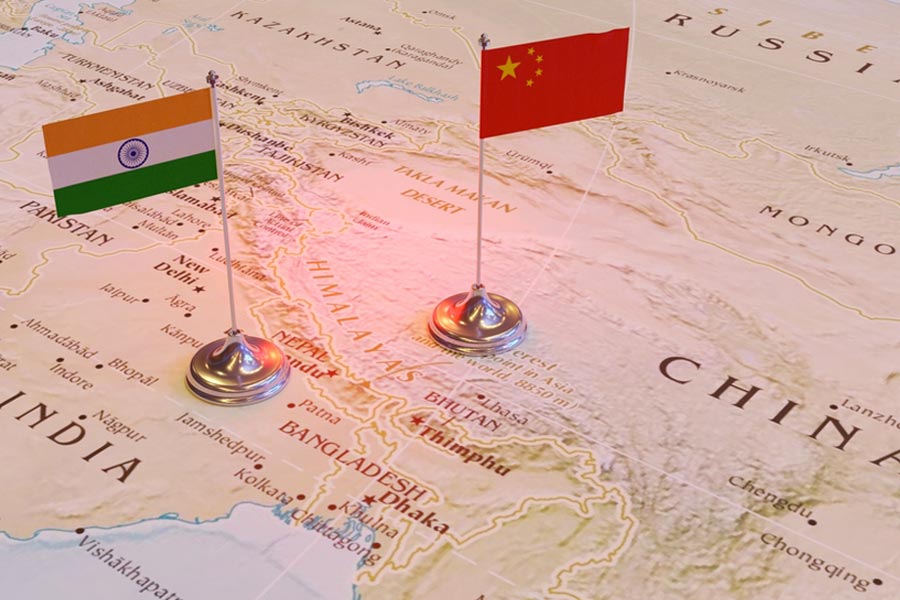The Chinese military has reiterated its claim over Arunachal Pradesh, calling the area an “inherent part of China's territory", days after India rejected Beijing's objection to Prime Minister Narendra Modi's visit to the state.
The Chinese Defence Ministry spokesman Senior Colonel Zhang Xiaogang said that the southern part of Xizang (the Chinese name for Tibet) is an inherent part of China's territory, and Beijing "never acknowledges and firmly opposes" the “so-called Arunachal Pradesh illegally established by India”, official media here reported.
Zhang made the remarks in response to India's enhancement of its military readiness through the Sela Tunnel in Arunachal Pradesh, according to a report posted on the Chinese Defence Ministry's website on Friday.
China, which claims Arunachal Pradesh as South Tibet, routinely objects to Indian leaders' visits to the state to highlight its claims. Beijing has also named the area as Zangnan.
India has repeatedly rejected China’s territorial claims over Arunachal Pradesh, asserting that the state is an integral part of the country. New Delhi has also dismissed Beijing's move to assign "invented" names to the area, saying it did not alter the reality.
On March 9, Prime Minister Modi dedicated to the nation the Sela Tunnel built at an altitude of 13,000 feet in Arunachal Pradesh that will provide all-weather connectivity to strategically located Tawang and is expected to ensure better movement of troops along the frontier region.
The Rs 825 crore tunnel, constructed on the road connecting Assam's Tezpur to West Kameng district of Arunachal Pradesh, is being billed as the longest bi-lane road tunnel in the world at such an altitude.
The Sela Tunnel will provide for better movement of troops and weaponry to various forward locations along the Line of Actual Control (LAC) with China, according to Indian military officials.
"The Indian side's actions contradict the efforts made by both sides to ease border situations and are not conducive to maintaining peace and tranquillity in the border areas," Zhang said, referring to Modi’s visit.
He said that the current border situation is generally stable, with effective diplomatic and military communication between the two sides on border issues of common concern.
Zhang urged India to "stop actions that complicate the border issue and to earnestly maintain peace and stability in the border area." He “stressed” that the Chinese military remains highly alert in defending national sovereignty and territorial integrity, according to the report.
Zhang's reaction follows China's foreign ministry spokesperson's remark on Monday about lodging a diplomatic protest with India over Modi's recent visit to Arunachal Pradesh.
India "strongly rejected" China's objection and asserted that the state "was, is, and will" always be an integral and inalienable part of India.
External affairs ministry spokesperson Randhir Jaiswal said in New Delhi that the Chinese side was made aware of this "consistent position" on several occasions.
Jaiswal said China's objection to such visits will not change the reality that Arunachal Pradesh "was, is, and will always be an integral and inalienable part of India." "Indian leaders visit Arunachal Pradesh from time to time, as they visit other States of India. Objecting to such visits or India's developmental projects does not stand to reason," he said.
"Further, it will not change the reality that the State of Arunachal Pradesh was, is, and will always be an integral and inalienable part of India," Jaiswal said.
Except for the headline, this story has not been edited by The Telegraph Online staff and has been published from a syndicated feed.










